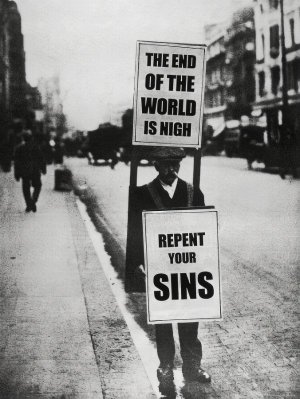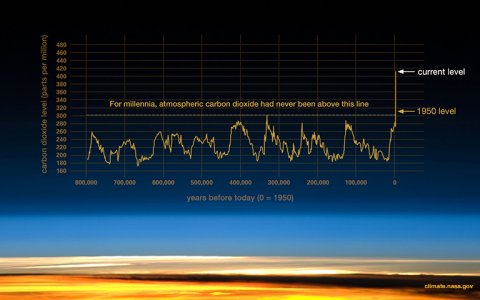David777
Well-known Member
- Location
- Silicon Valley
Web searching with "usa dystopia" will provide many hits discussing such scenarios, the validity of each uncertain and vague. For those with more time and effort, one can of course read a list of books and web essays devoted to the subject including survivalist scenarios and strategies. The below is an example of one summary of our USA current beginning descent into.
Though against my own expectations and political leanings as someone that hides from political involvements, it does address several of the broad areas at issue and is well written. And then again some like overpopulation and open border immigration are avoided that reflects the author's more liberal biases.
The (Dis) United States of America, 2030: A dystopian scenario
If this person were still young especially with dependents to protect, I would probably be considering escaping to more remote regions to set up and stabilize a residence within a community before any serious dystopian events occur. But no, I'm getting old with medical issues and an inevitable sunset looming. So am instead on an edge between remaining in a now much more interesting modern technological urban world I've long since become addicted to and enjoy and can slowly trickle away funds upon, and being able to run away at short notice to a primitive world I may not even find worth struggling within.
Although I don't even have savings to purchases a residence anywhere here in urban coastal California, I do have enough to move to less expensive regions. And if much worse occurs I fear to even think about, as in some disaster like war or a much worse pandemic, could at short notice buy a larger vehicle to pack away survival gear and supplies, then head north to remote public lands near the Pacific Ocean I could squat on in order to painfully scratch a boring existence off of where I could given my outdoor background subsist off natural foods like fish and sea shore plants.
Those wealthy and powerful now living in sheltered urban enclaves, regardless of how much $$$ assets, and gold, they have, are really just sitting ducks in scenarios of serious dystopian chaos. They will be no better off than those Babylonian elites were 4000 years ago or Romans aristocrats 1500 years ago as their grand civilizations crumbled suddenly and eventually eroded into dust, forgotten. After protection from police and military fade, only food will immediately matter to most of we way overpopulated Earth monkeys and how to forcefully take or protect it. Individuals in residences with weapons will have but a short future once evil desperate gangs arise.
Though against my own expectations and political leanings as someone that hides from political involvements, it does address several of the broad areas at issue and is well written. And then again some like overpopulation and open border immigration are avoided that reflects the author's more liberal biases.
The (Dis) United States of America, 2030: A dystopian scenario
If this person were still young especially with dependents to protect, I would probably be considering escaping to more remote regions to set up and stabilize a residence within a community before any serious dystopian events occur. But no, I'm getting old with medical issues and an inevitable sunset looming. So am instead on an edge between remaining in a now much more interesting modern technological urban world I've long since become addicted to and enjoy and can slowly trickle away funds upon, and being able to run away at short notice to a primitive world I may not even find worth struggling within.
Although I don't even have savings to purchases a residence anywhere here in urban coastal California, I do have enough to move to less expensive regions. And if much worse occurs I fear to even think about, as in some disaster like war or a much worse pandemic, could at short notice buy a larger vehicle to pack away survival gear and supplies, then head north to remote public lands near the Pacific Ocean I could squat on in order to painfully scratch a boring existence off of where I could given my outdoor background subsist off natural foods like fish and sea shore plants.
Those wealthy and powerful now living in sheltered urban enclaves, regardless of how much $$$ assets, and gold, they have, are really just sitting ducks in scenarios of serious dystopian chaos. They will be no better off than those Babylonian elites were 4000 years ago or Romans aristocrats 1500 years ago as their grand civilizations crumbled suddenly and eventually eroded into dust, forgotten. After protection from police and military fade, only food will immediately matter to most of we way overpopulated Earth monkeys and how to forcefully take or protect it. Individuals in residences with weapons will have but a short future once evil desperate gangs arise.
Last edited:



